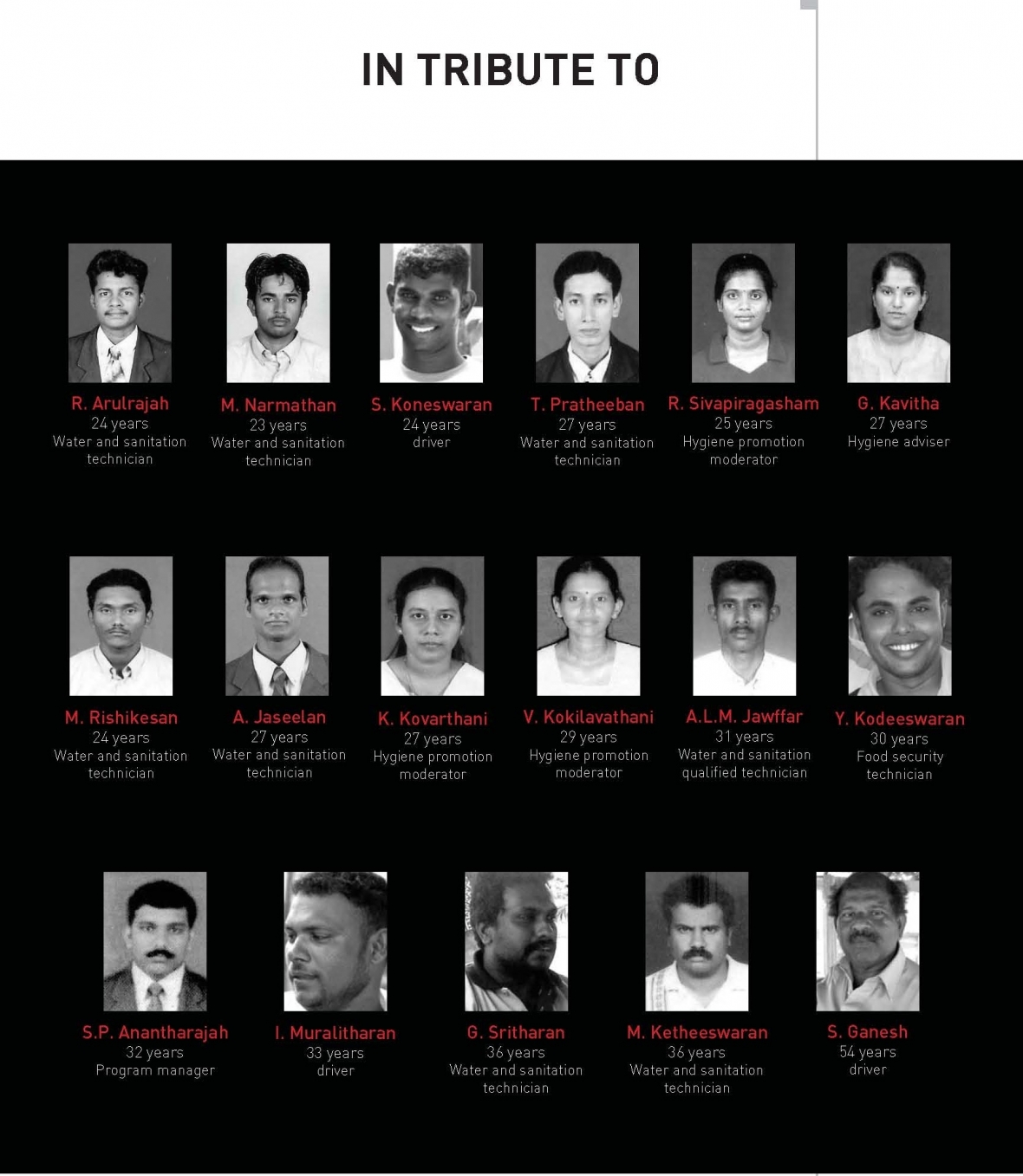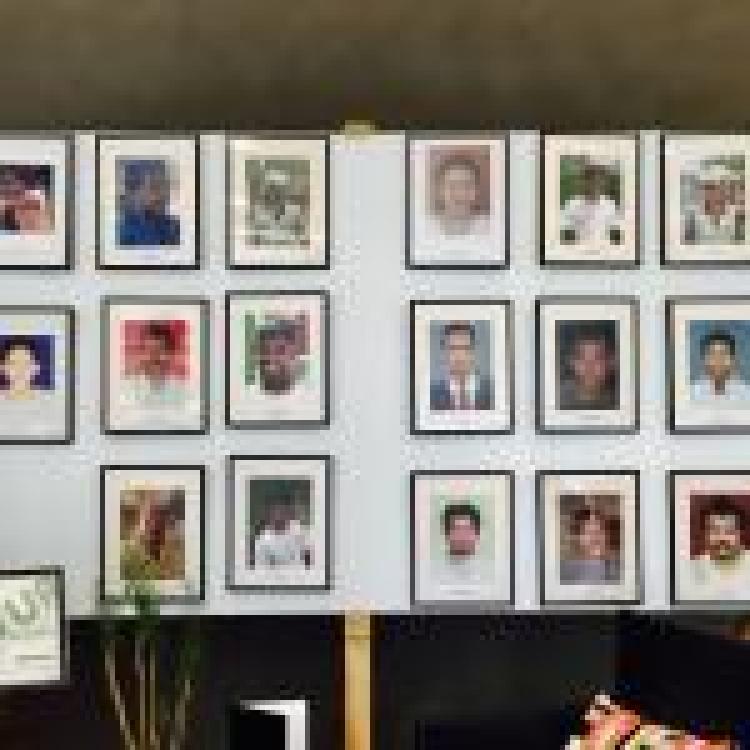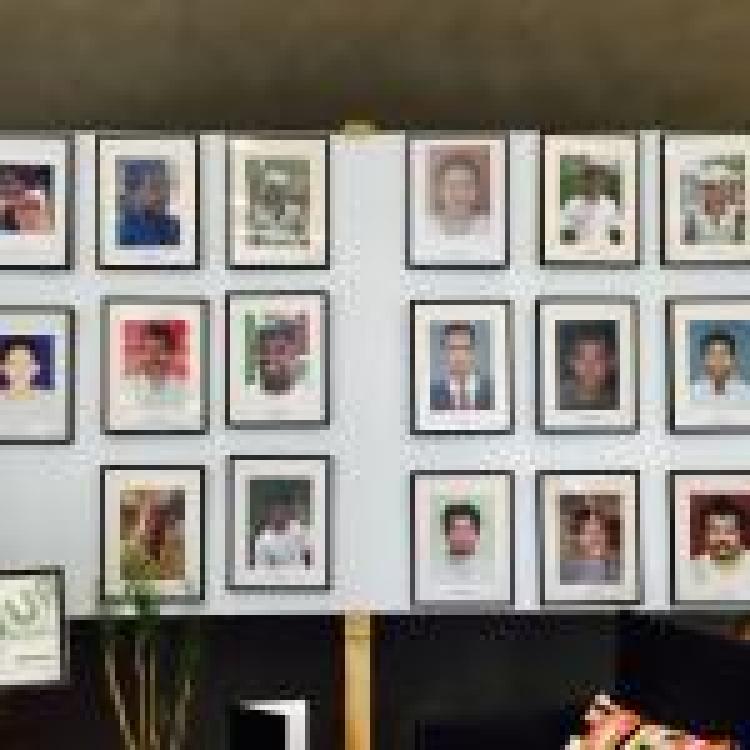
Image courtesy of Action Contre la Faim (ACF)
Today, French NGO, Action Contre la Faim (ACF) called for those responsible for the massacre of 17 aid workers to be prosecuted as "justice has still not been served" despite 15 years passing since their murder.
On August 4, 2006, the Sri Lankan military lined up and summarily executed 17 ACF workers in Muttur, Trincomalee on the organisation's premises. The ACF team were in Sri Lanka following the catastrophic tsunami in 2004, to provide assistance to survivors.
All of those slain, except one were Tamil, with the killings thought to have been carried out by Sri Lankan security forces.
In a statement marking 15 years since the massacre, ACF said:
"For 15 years, none of the successive Sri Lankan governments has acted in favor of the victims and their families even if the gravity of this crime has been recognised by the highest international authorities. The involvement of the Sri Lankan authorities, their efforts to block any real investigation, and the passing years make the pursuit of justice for our colleagues even more difficult and complex."
Various domestic 'investigative' processes were set up, however the Sri Lankan authorities have failed to prosecute the perpetrators of this massacre.
"Despite this impunity, we succeeded in obtaining in 2014 the opening of an international investigation, which resulted in a report on the crimes conducted during the Sri Lankan civil war. The United Nations Human Rights Council corroborated our findings that the Sri Lankan security forces were involved in the attack and that the families and witnesses were under threat," the organisation added.
ACF stated that it will continue its demands for justice and calls on "all relevant authorities to use their influence to ensure that justice will be served for the victims and their families."
The 17 victims of the massacre were: M.Narmathan, I.Muralitharan, R.Arulrajah, T.Pratheeban, A.Jaseelan, G.Kavitha, K.Kovarthani, V. Kokilavathani, S. Romila, M. Ketheswaran, M. Rishikesan, S.P. Anantharajah, G. Sritharan, S. Koneswaran, S.Ganesh, Y.Kodeeswaran and A.L.M Jawffar.
Read the full statement here.


